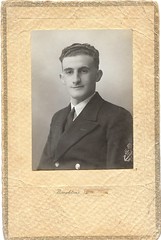This is the 7th in a series of pieces on characters and places
featured in Joinings: A Seared Sky.
This background information, isn’t covered in the book, but should enhance the
reading experience. For some of my people, there’ll be a character drawing,
supplied by Alice Taylor, maybe a video interview, and accompanying script. I
may do short pieces of fiction, deepening knowledge of certain minor characters
as well.
For the places, I may use sections of the map, to indicate location,
along with a description of the place, as I see it, and, where appropriate,
links with characters. Perhaps I’ll indicate the way of life there with a short
anecdote or story. I won’t reveal any of the main story, either as already
published or as written in the series, merely enhance readers’ enjoyment of the
trilogy by providing more information. I hope this will give pleasure to those who’ve
bought the book and, perhaps, persuade others to take that step.
Pronunciation hints:
Dilanthas – di-lan-thass
Krohtl – krow-tul
Muhnilahm – mew-nee-larm
Ytraa – eet-rah
Names are pronounced
phonetically. But this is my take on them; how I hear them in my head. You may
pronounce them as you wish, of course; reading is, after all, active rather
than passive.
Dilanthas,
from Krohtl, Muhnilahm, is a shy girl Chosen to go on the pilgrimage as a
Virgin Gift. Here is a short piece about her initiation into womanhood.
All her life, Dilanthas
had lived under Ytraa’s Peak, rising tall and dark to the southwest of her
home. Her father urged the whole family to make their prayers at the back of
the house, so they could see the craggy mountain before and after their acts of
worship.
Tomorrow, she must make the journey up to the
Plain of Ytraa, surrounding the high peak, and spend a whole sixday with other
girls her age. Under strict instruction by the Holy Ones, she’d learn
discipline and devotion, earning hard smacks for every failure to do exactly as
they demanded.
It wasn’t the prospect of punishment she most
feared, though she was certain she wouldn’t pass the sixday without pain and
humiliation; it was the way she must leave the town. To walk the entire length
of the main road and allow all to see the butterfly tattoo adorning her left
breast and, worse, the hummingbird pointing its long sharp beak at the very
centre of her womanhood. These were things only her betrothed and Ytraa should
see and this exposure was what she most dreaded. After all, naked was sacred.
‘You’ll no be on yer own, lass.’ Her father’s
words were intended to hold comfort.
She wanted to make him proud, make that walk with
head held high and her whole body declaring her love of Ytraa. Shyness and
modesty warred with her desire to do her best for her family and her beloved,
as she made her way to the ceremony that would end her life as a daughter and
announce her readiness to join and become a wife.
‘All t’other girls your age ‘ave to do same,
Dilanthas. Me an’ your father did it when we was gettin’ ready to marry. Think
on your pride as a Follower an’ go to yon Peak like our founder did all those ‘undreds
of cycles ago.’ Her mother’s words were encouraging; she seemed happy with her
life, and she and Father got on well.
It was true that Dilanthas looked forward to the
ceremony that would come a few sixdays later. She and her betrothed would take
the same route together, leading their families to the Plain of Ytraa, there to
join before Ytraa and become as one.
She’d talked with the other girls, of course. They’d
be fourteen in total. One by one they’d leave town and head into the hills.
They were supposed to go to the Peak alone, but most intended to wait on the
edge of the olive grove above the river and travel together.
Dilanthas would be sixth to leave and she’d vowed
to follow the rules and make her way on her own. But she’d have to pass the
place where they were due to collect and she wondered if she’d have the courage
to leave them behind. There’d be safety in numbers. Should they pass an
isolated farm, or come upon travellers, she’d be one of a group rather than a
girl alone.
She could see the attraction of their intended
disobedience. But would she be bad, or would she do as she’d been told, and
make a solitary journey? It was considered part of the test.
For now, evening prayers were over and she’d had
her last meal with them. Mother had prepared Father’s freshly caught fish with
wine, something they rarely had in the house, and the tangy flavour lingered in
her mouth. She’d placed her few needs in the rush bag she’d hang from her
shoulders at her back. Now, all she needed was a good night’s sleep to be ready
for the morning.
The family would take the short walk to the beach.
There she’d remove her tabard and present it to her father as a sign of her
independence. She’d step into the sea until her whole body was submerged. Then she’d
turn and walk past the townspeople to the initiation on the Plain, following
the tradition set by the first Follower, as he set out to explore their new
home on this island. If she kept that thought in her mind, she might get
through the ordeal with less anxiety. She might even feel the pride and joy her
father expected her to show.
And, of course, her betrothed would be there,
watching. On her return, he’d make the same trip, with the other bucks of his
age, and she’d watch them. That was something to look forward to, after all.








